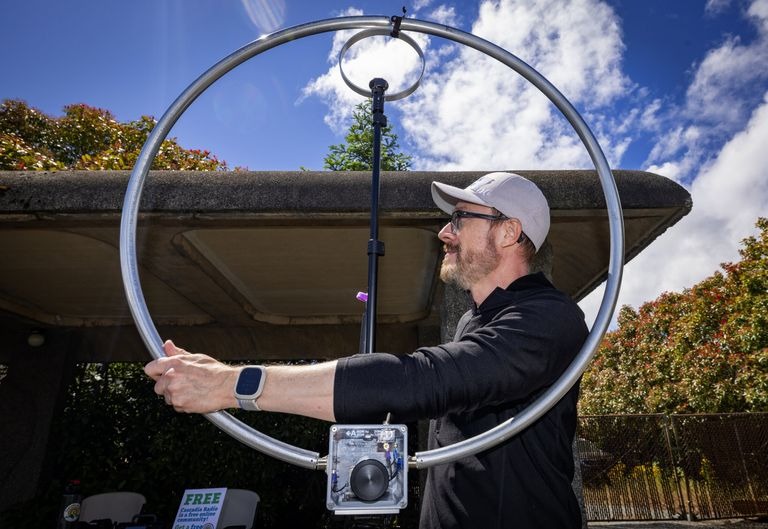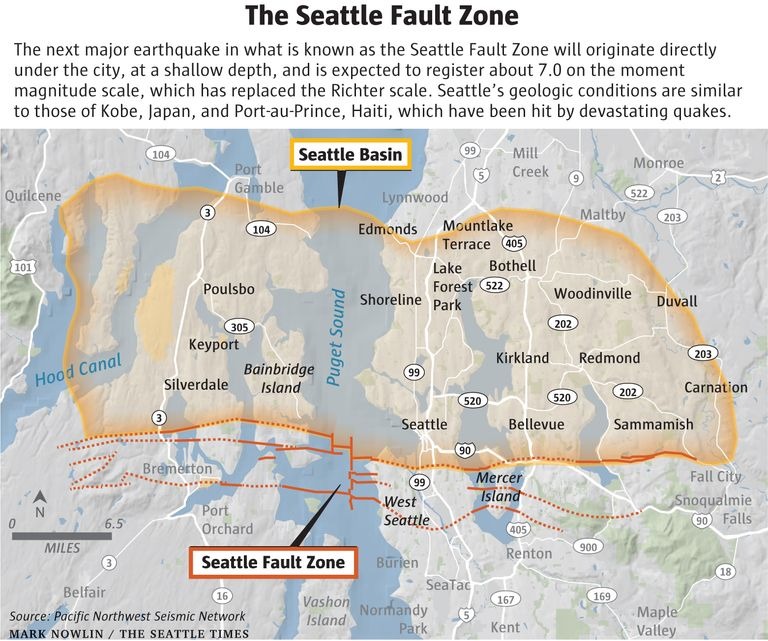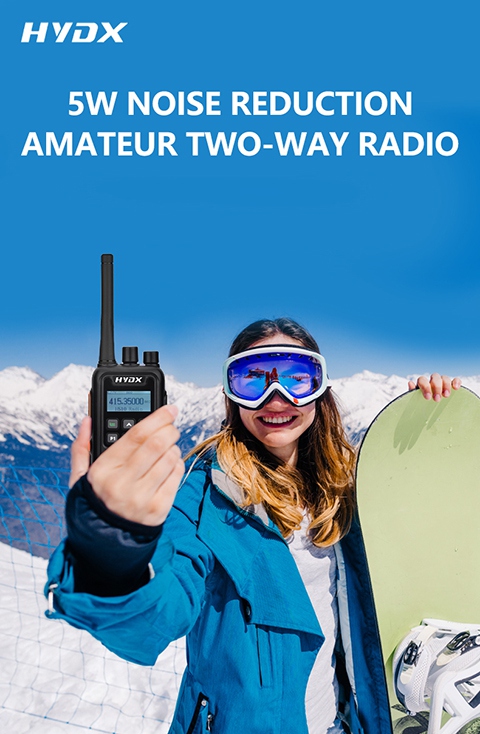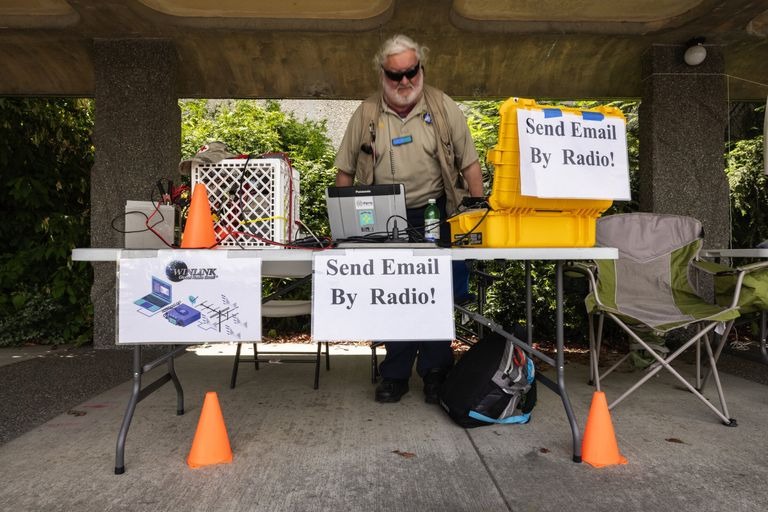Across a grassy field at South Seattle College, people in orange and yellow neon safety vests set up 60-foot antennas, linked together by wires strung up like a clothesline. Solar panels powering radios and receivers stretched across the field and parking lot.

It was Seattle Radio Field Day, a 24-hour event where radio hobbyists connected with others on air across the world, learned about rugged 2 way radios and practiced radio emergency preparedness.
Some people, however, know exactly what they would do. For instance, locals involved with the Seattle Emergency Hubs organization, a volunteer-based group that teaches Seattleites about emergency situation preparedness, would report to their nearest hub, a designated meeting place for community members in the event of a natural disaster.

Others, like those in Seattle-area amateur radio clubs and the Seattle Auxiliary Communications Service, would get on air to connect with other parts of the city and the Seattle Office of Emergency Management to relay information.
At South Seattle College in late June, RVs and campers filled a parking lot, where members of local radio groups had set up camp for outdoor two way radio training exercise.

Volunteers and members from Cascadia Radio, Puget Sound Repeater Group, West Seattle Amateur Radio Club and Seattle Auxiliary Communications Service spread across sidewalks and the field. Some used Morse code to send messages, while others used computers to watch radio frequencies coming from across the world.
Билл Томассен, член Клуба радиолюбителей Западного Сиэтла, настроил свой компьютер и радио, чтобы обучать членов сообщества системе под названием Winlink, программе, которая не требует Интернета, но может передавать и получать сообщения по радио.

Используя эту систему, Томассен подключает свой компьютер к радио, которое может передавать по электронной почте любые сообщения на устройство с доступом в Интернет, находящееся за пределами зоны бедствия.